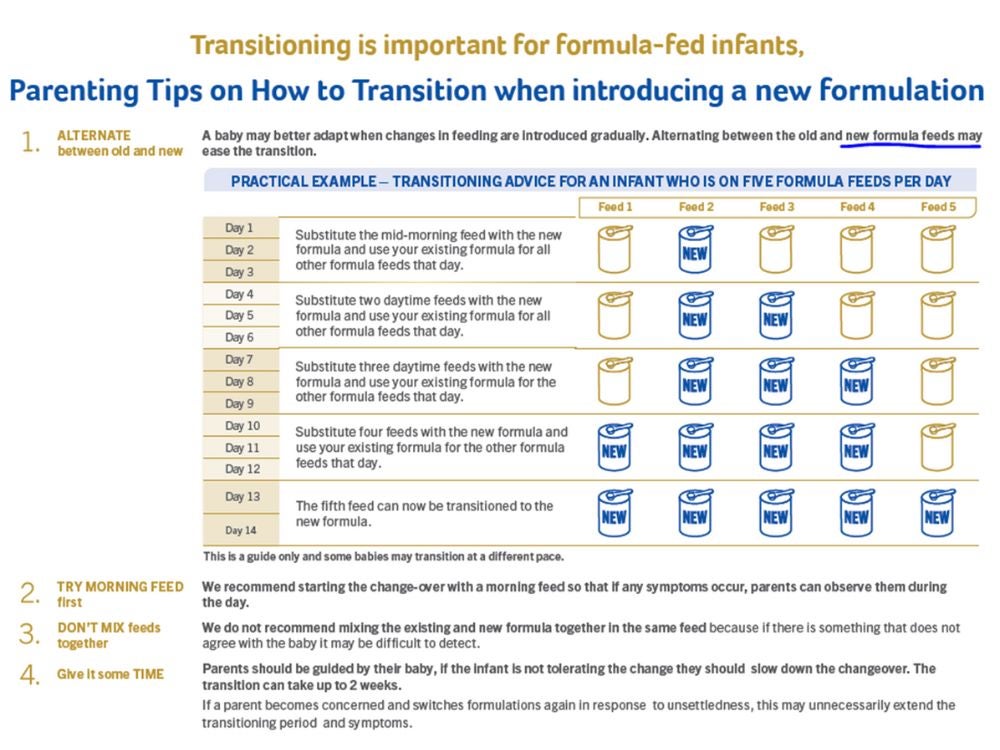
Transitioning Between Different Milk Feeding Options
Whether you’re moving from breastfeeding to formula feeding, or changing from one formula to another, it’s important to keep your eye out for signs of intolerance. Read and hear tips from our experts.
A baby may better adapt when changes in feeding are introduced gradually. Alternating between the old and new feeds may ease the transition.
In some cases, you may find that your baby does not tolerate the new feed at all and you may need to try a different baby formula. If your baby experiences any severe side effects from changing the feed type, such as vomiting or diarrhoea or allergic reaction, you should seek the advice of your doctor or health care nurse without delay.
It’s important to know that not all formulas suit all babies, however for most, if they don’t like the new feed initially, they will adapt to it over time, so don’t give up too quickly. Whenever you change from one feeding option to another it’s important to give your baby some time to adapt to the new feed. This can be up to 2 weeks.
The most common change parents see when changing feeds is a change in their baby’s bowel habits, this may be the smell, colour, frequency, texture, or all of the above! A change in their bowel movements, however, may not necessarily be related to feeding, bowel motions can be affected by a number of factors, including:
- Fluid intake
- Introduction of solids
- Age (as age increases the stool characteristics change)
- Illness and infections
- Medications


IMPORTANT NOTICE: Breast milk is best for babies and provides ideal nutrition. Good maternal nutrition is important for the preparation and maintenance of breastfeeding. Introducing partial bottle feeding could negatively affect breastfeeding and reversing a decision not to breastfeed is difficult. Professional advice should be followed on infant feeding. Infant formula should be prepared and used exactly as directed or it could pose a health hazard. The preparation requirements and cost of providing infant formula until 12 months of age should be considered before making a decision to formula feed.


